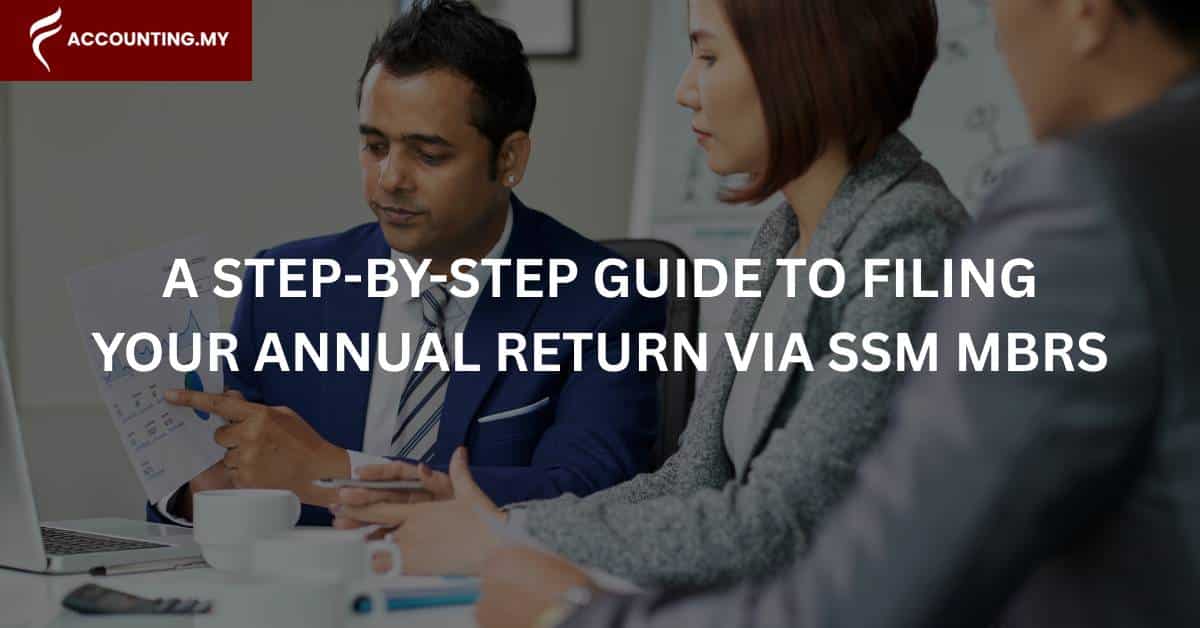Key Takeaways
- Indirect tax is collected through intermediaries, not directly from taxpayers.
- Malaysia’s main indirect taxes include SST, excise duties, customs/import/export duties, and digital service tax.
- SST remains the core indirect tax, with 8% service tax and new RM1 million thresholds for certain sectors (effective July 2025).
- All indirect taxes are overseen by the Royal Malaysian Customs Department (RMCD).
- Compliance ensures fair pricing, better cash flow visibility, and audit protection for SMEs.
Indirect tax refers to tax collected by businesses on behalf of the government when goods or services are sold.
Unlike direct tax (which individuals or companies pay directly to LHDN), indirect taxes are embedded in the price customers pay, meaning businesses act as the government’s collectors.
In Malaysia, indirect taxes include:
- Sales and Service Tax (SST)
- Excise Duty
- Customs Duty (Import & Export)
- Digital Service Tax (DST)
So, let the leading accounting firm in Malaysia to explain why indirect tax is important and how it differs from direct tax.
Direct vs Indirect Tax: What’s the Difference?
|
Aspect |
Direct Tax |
Indirect Tax |
|
Who Pays It |
Individuals or companies directly to LHDN |
Collected by businesses when selling goods/services |
|
Examples |
Income tax, corporate tax |
SST, excise duty, customs, digital service tax |
|
Authority |
LHDN (Inland Revenue Board) |
RMCD (Royal Malaysian Customs Department) |
|
Timing |
Paid on income/profit |
Paid at the point of transaction |
|
Visibility |
Clearly stated in tax filings |
Hidden in retail/service prices |
Example: A marketing agency pays corporate tax (direct). But when it rents a coworking space or books a hotel for a client, it pays 8% service tax (indirect).
Types of Indirect Tax in Malaysia
1. Sales and Service Tax (SST)
The SST system, Malaysia’s main indirect tax was reintroduced in 2018 to replace GST.
It operates as two separate taxes:
- Sales Tax: Applied once at the manufacturing or import stage.
- Service Tax: Charged on taxable services at 6% or 8%, depending on category.
Recent Updates (Effective 1 July 2025):
|
Change |
Previous Rule |
Updated Rule (2025) |
|
Service Tax Rate |
6% |
8% for hotels, entertainment, consultancy, leasing, financial services |
|
Registration Threshold |
RM500,000 |
Leasing/Rental services, RM1,000,000 over 12 months. Financial service |
|
Fruit Imports |
Apples & oranges taxable |
Imported apples, oranges, mandarin oranges and dates are exempt |
|
Beauty Services |
Taxable |
Proposed taxation of beauty services was dropped after public feedback |
Real Example: A logistics company with RM700,000 annual turnover must register for SST. A car leasing firm hitting RM1.1 million in fees must charge 8% service tax.
2. Excise Duty
Excise duty applies to locally manufactured or imported luxury or controlled goods.
These include:
- Alcoholic beverages
- Tobacco products
- Motor vehicles
- Sugar-sweetened drinks
- Vapes and electronic cigarettes
Example: If a Malaysian distributor imports whiskey, excise duty is charged based on volume + alcohol percentage, often adding 40–60% to final cost.
“Excise is a key tool for both revenue generation and public health policy, discouraging unhealthy consumption.”
3. Customs Duties (Import & Export Taxes)
Malaysia imposes customs duties to regulate trade and protect local industries.
|
Type |
When Applied |
Examples |
|
Import Duty |
On goods brought into Malaysia |
Clothing, electronics, machinery, cars |
|
Export Duty |
On specific export commodities |
Palm oil, timber, crude minerals |
Customs duty rates vary by HS Code (Harmonised System Code) and depend on trade agreements like ASEAN FTA, RCEP, or Malaysia–China FTA.
Example: A Malaysian café importing espresso machines may pay 10% import duty plus 5% sales tax. Meanwhile, a palm oil exporter pays export duty on shipments exceeding monthly price thresholds.
4. Digital Service Tax (DST)
Introduced in January 2020, the 6% Digital Service Tax applies to foreign digital platforms providing services to Malaysian consumers.
Examples:
- Streaming (Netflix, Spotify)
- SaaS tools (Canva, Zoom, Adobe)
- Online ads (Meta, Google Ads)
Foreign providers earning more than RM500,000 annually from Malaysian users must register with RMCD and charge DST.
Example for SMEs: If your local marketing agency subscribes to Canva Pro, the 6% DST is already included. However, if your company offers digital services abroad, you may also need to register under RMCD’s cross-border tax scheme.
Why Indirect Tax Matters for SMEs
Indirect tax impacts daily business costs and compliance obligations.
Here’s how:
- Pricing Strategy
Taxes like SST and excise are built into your selling price. Miscalculating them can make your products uncompetitive. - Cash Flow
Service tax is generally on a payment basis, but a 12-month deemed-paid rule can make tax due even if a customer hasn’t paid, so cash-flow planning is essential. - Audit Risk
RMCD conducts frequent desk and field audits. Incorrect classification or missed filings can trigger penalties. - Trade Efficiency
For importers/exporters, customs compliance determines how quickly shipments clear ports and whether you qualify for exemptions under trade agreements.
Who Regulates Indirect Taxes in Malaysia?
- Royal Malaysian Customs Department (RMCD): Oversees SST, excise, customs duties, and digital service tax.
- Lembaga Hasil Dalam Negeri (LHDN): Handles direct taxes such as income, corporate, and withholding tax.
Most SMEs interact primarily with RMCD for indirect tax and LHDN for corporate tax, meaning both must align during audits and filings.
Compliance, Filing, and Record-Keeping
SST Filing
- Submit Form SST-02 via MySST portal every two months.
- Pay by the last day of the month after each taxable period.
- Maintain sales invoices, import/export documents, and receipts for 7 years.
We have a whole blog on how to register SST right here, for businesses.
Customs Declarations
- File through uCustoms portal or appointed forwarding agents.
- Misclassification of HS Codes can result in penalties or shipment delays.
Excise & DST Filings
- Excise manufacturers must report monthly.
- Foreign digital service providers file quarterly.
Penalties for Non-Compliance
|
Offence |
Penalty |
|
Late SST Payment |
10% (first 30 days) + 15% + 15%, max 40% |
|
Failure to Register |
RM50,000 fine or imprisonment up to 3 years |
|
Incorrect Declaration |
Penalty of RM500–RM50,000 depending on severity |
|
Customs Underreporting |
Confiscation of goods, additional duty, or compound fines |
Example: A small importer underdeclaring shipment value may face double duty charges plus seizure of goods.
How Malaysian SMEs Can Stay Compliant with Indirect Tax
Indirect tax compliance may sound like something only large corporations worry about, but in Malaysia, even a small logistics firm or neighbourhood café (plenty actually!) can cross the SST threshold without noticing.
Below are five practical steps SMEs can take to stay compliant, minimise risk, and manage cash flow confidently.
1. Classify Your Goods and Services Correctly
Before you issue any invoice, verify if your product or service is taxable under SST, customs, or excise duty rules.
- Use the MySST portal and the Customs Tariff Code (HS Code) directory to confirm tax treatment.
- For mixed businesses (for example, a beauty salon selling retail hair products), separate your SST-taxable and non-taxable items on invoices.
- Misclassification is one of the most common reasons RMCD issues audit queries.
Example: A car workshop offering repairs (service-taxable) and selling spare parts (sales-taxable) must issue two separate bills or clearly break down the charges.
2. Monitor Turnover and Registration Thresholds
In Malaysia, SST registration depends on annual taxable turnover.
- Most services are taxable once turnover exceeds RM500,000, while rental and financial services start at RM1 million.
- Set up monthly or quarterly tracking in your accounting software to avoid accidental breaches.
- Once you cross the threshold, registration must be completed within 30 days, or penalties apply.
Tip for SMEs: Even if your sales fluctuate seasonally (for example, during Ramadan or year-end sales), Customs assesses turnover on a rolling 12-month basis.
3. Maintain Proper Digital Records
RMCD requires all indirect tax documents to be kept for 7 years, in English or Bahasa Malaysia, and stored within Malaysia.
- Keep SST-02 filings, e-invoices, customs declarations, import/export forms, and excise statements in a secure cloud drive.
- Label folders by tax period for easy retrieval during audits.
- Many local SMEs now use cloud systems like AutoCount, SQL, or Xero to sync invoices and generate SST reports automatically.
Why it matters: During field audits, Customs officers increasingly ask for digital access instead of paper binders.
4. Train Staff Across Departments
Indirect tax compliance is not just the accountant’s job.
- Sales staff must know when to apply service tax on invoices.
- Procurement officers should check suppliers’ SST status before paying invoices.
- Finance teams must understand how to prepare returns, track penalties, and respond to RMCD queries.
Example: A café’s cashier mistakenly charges 8% service tax even though the business is below threshold. This creates over-collection liability, which Customs can penalise if not refunded correctly.
Regular internal training avoids such mistakes and builds confidence during audits.
5. Engage Licensed Tax or Customs Professionals
When your business expands into importing, exporting, or providing cross-border digital services, indirect tax becomes complex.
- Licensed tax agents and customs brokers can help classify goods, prepare declarations, and apply for exemptions (such as manufacturer or B2B reliefs).
- SMEs in Johor, Penang, and Sabah often rely on local forwarding agents familiar with uCustoms and RMCD procedures.
- Professional advisors also help you respond to audit notices, appeal penalty assessments, or plan ahead for SST scope expansions.
Practical tip: Always verify that your consultant or agent is registered with the RMCD to ensure advice is compliant.
Conclusion: Indirect Tax Is the Hidden Cost You Can Control
Indirect tax may seem invisible, but it affects every ringgit your business earns or spends.
From the price of imported goods to monthly SST returns, compliance is not just about avoiding fines, it’s about maintaining trust, clarity, and competitiveness.
At Accounting.my, we help Malaysian SMEs simplify indirect tax compliance through practical explanations, timely updates, and clear guidance based on RMCD’s latest regulations.
We offer taxation and accounting services, so you can worry about running your business, while we take care of the pesky but mandatory paperwork.
Frequently Asked Questions About Indirect Tax in Malaysia
Indirect tax is tax collected by businesses when selling goods or services, including SST, excise duty, customs duty, and digital service tax.
Direct tax is paid directly to LHDN (like income tax). Indirect tax is collected by intermediaries and managed by RMCD.
Yes. SST is Malaysia’s main indirect tax, replacing GST in 2018.
Sales and Service Tax, excise duty, customs (import/export) duties, and the 6% digital service tax.
The Royal Malaysian Customs Department (RMCD) handles all indirect taxes.
Register with RMCD if thresholds are met, file returns on time, and keep tax records for seven years.















